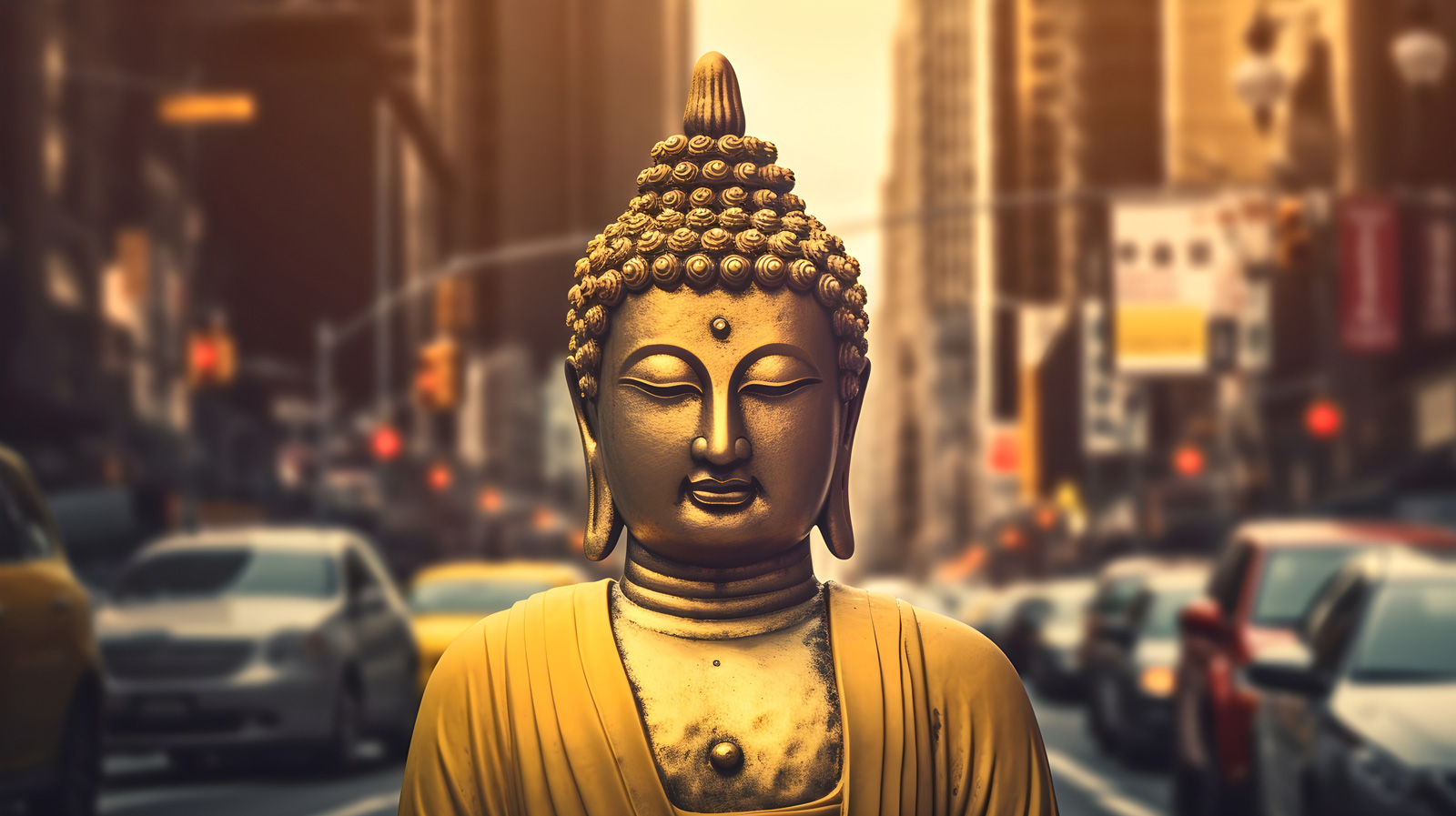In this rapidly evolving world, we are often held hostage by our own thoughts. Overthinking is a prevalent issue that can lead to undue stress, anxiety, and even depression. However, by incorporating Zen meditation into your daily routine, it is possible to quiet the mind and achieve a state of inner peace and tranquility. Let’s delve into the world of Zen meditation and explore how it can be a beneficial tool for overthinkers.

The Zen Philosophy
Zen Buddhism offers a unique perspective on life, focusing on mindfulness, non-attachment, and compassion. Overthinking is viewed as a hindrance to spiritual growth and a source of suffering. It occurs when our minds become overly active and unable to rest. Zen meditation aims to alleviate this issue by promoting mindfulness and tranquility.
Zen meditation, also known as Zazen, is a form of sitting meditation that evolved from the teachings of Buddha. It is characterised by its focus on the present moment and the cultivation of an inwardly focused mind. This act of inward focusing is a critical step in quieting a busy mind.
Recognising Overthinking
Overthinking can lead to a range of mental and physical symptoms. These may include repetitive thoughts, excessive worrying about the future, difficulty making decisions, analysis paralysis, obsessing over past mistakes, difficulty sleeping, physical tension and headaches, increased heart rate, digestive issues, and feelings of fatigue or exhaustion.
Recognising these signs and symptoms is crucial in addressing and managing the issue. It is the first step towards learning how to quiet your mind.
Zen Practices to Overcome Overthinking
Zen Buddhism offers various practices and techniques to help individuals overcome overthinking. Here are a few effective methods:
Alternate Nostril Breathing
This technique is believed to harmonise the left and right hemispheres of your brain, calm your nervous system, and create a sense of relaxation and ease.
The 100-Breaths Technique
This method involves focusing on your breathing and counting each breath, leading to greater relaxation and mental clarity.
Full Body Breath Scan
This practice involves visualising a soothing warm light filling each part of your body as you inhale and exhale, releasing any tension you may be carrying.
Walking Meditation
Walking meditation involves synchronising your breathing with your steps and using all of your senses to fully experience where you are.
Meditative Shower
A meditative shower can help you focus on your senses and cleanse your body and mind.
Chore Meditation
Chore meditation involves immersing yourself completely in an activity such as vacuuming, dusting, or washing dishes. This can help focus your attention and create a sense of acceptance and presence.
Mindful Eating
Turning mealtime into meditation can help you focus on the present moment and appreciate the different flavours and textures of your food.
Incorporating any of these techniques into your daily routine can help you reap the benefits of Zen meditation. Regular practice, even just five minutes a day, can greatly improve your mental clarity and physical health.
The Role of the Body in Zen Meditation
An essential aspect of Zen meditation is understanding the ‘withness’ of the body. Our bodies are the immediate environment of our lives, and Zen meditation encourages us to form a healthy relationship with our bodies. This practice promotes a state of present-moment awareness, which allows us to observe our thoughts without getting caught up in them, reducing overthinking and promoting well-being.
The Five Hindrances and Overthinking
The Five Hindrances in Buddhism refer to the mental states obstructing spiritual progress and leading to suffering. These include sensual desire, ill-will, sloth and torpor, restlessness and worry, and doubt. Overthinking is closely related to the hindrance of restlessness and worry. Zen meditation helps to overcome these hindrances and achieve a state of mental clarity and peace.
Zen Meditation and Mindfulness
Zen meditation and mindfulness go hand in hand. Mindfulness is a state of present-moment awareness that involves paying attention to one’s thoughts, feelings, and surroundings. By practising mindfulness, individuals can learn to observe their thoughts without getting caught up in them, reducing overthinking and promoting well-being.
Healthy Habits to Prevent Overthinking
Adopting healthy habits can also be helpful in preventing overthinking. This can include prioritising self-care and relaxation, maintaining a consistent sleep schedule, creating a supportive and positive environment, surrounding yourself with supportive people, and seeking professional help when necessary.
Zen Meditation for Better Mental Health
Zen meditation can improve mental health by reducing stress and anxiety, increasing self-awareness, and reducing cravings. Zen practices can also help individuals focus on the present moment and reduce mental agitation, leading to greater well-being and a reduction in overthinking.
Zen Meditation as a Companion to Faith
For theists, Zen meditation can be practised alongside faith. The practice of Zen meditation can open one up to divine guidance and help cultivate a sense of inner peace and well-being. In the Christian tradition, the body is viewed as a temple of the Holy Spirit, and Zen meditation can help one explore this temple in a mindful and respectful manner.
Conclusion
In conclusion, overthinking can be a challenging issue to deal with, but it’s not something that we have to accept as part of our daily lives. By incorporating the teachings of Zen Buddhism and adopting a regular meditation practice, we can overcome overthinking and achieve greater inner peace and well-being. Remember, it’s never too late to start taking steps towards a healthier and happier you.

